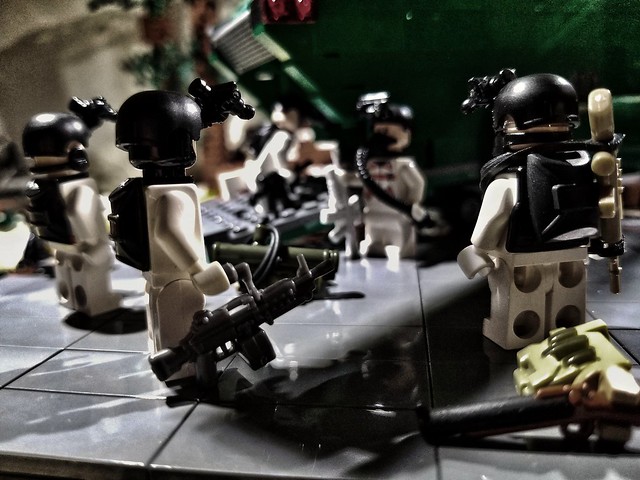- Joined
- Jan 17, 2010
- Messages
- 4,522
- Reaction score
- 5,483
BY MARI YAMAGUCHI
Updated 10:15 AM BRT, December 22, 2023
TOKYO (AP) — Japan’s defense spending will increase more than 16% next year under a record military budget approved Friday that is intended to accelerate the deployment of long-range cruise missiles that can hit targets in China or North Korea.
The budget adopted by the Cabinet also will further fortify the military with F-35 stealth combat jets and other American weapons as Japanese troops increasingly work with allies and take on more offensive roles.

The 7.95 trillion-yen ($56 billion) defense budget for the 2024 fiscal year that begins in March marks the second year of a five-year military buildup program under a new security strategy Prime Minister Fumio Kishida’s government adopted a year ago.
The reinforcement of strike capability the strategy envisions is a major break from Japan’s postwar principle of limiting the country’s use of force to self-defense. The defense budget is part of a 112.7 trillion-yen ($794 billion) national budget plan and still needs the approval by the parliament.
Japan plans to spend 43 trillion yen ($300 billion) through 2027 to bolster its military power and to nearly double its annual spending to around 10 trillion yen ($68 billion), which would make Japan the world’s third-biggest military spender after the United States and China.
The budget would boost Japan’s arms spending for a 12th year. Last year, the government budgeted 6.8 trillion yen (about $48 billion).
In another step underscoring a shift away from the country’s self-defense-only principle, Japan partially lifted its ban on lethal weapons exports Friday by allowing shipments of weapons and components made in Japan under foreign licenses to the licensing nations.

The move is the first major revision of the arms export ban since it was initially eased in 2014. The Japanese Foreign Ministry said the change would contribute to reinforce the bilateral security cooperation and the peace and stability of the Indo-Pacific, but opponents said it would let Japanese-made weapons help in escalating conflicts.
Japan quickly approved the first shipment authorized by the step, agreeing to send to the United States surface-to-air Patriot guided missiles produced in Japan under a U.S. license.
“The scope, scale, and speed of Japan’s security reforms have been unprecedented,” U.S. Ambassador to Japan Rahm Emanuel said in a statement on X, praising the easing of the defense equipment and transfer policy as “historic” and “a significant example of Japan’s shared commitment to deterrence.”
The country’s ban on the export of lethal weapons has limited the scope of its efforts to develop arms technology and equipment. Japan is spending more than 70 billion yen ($490 million) in 2024 for the development of a next-generation fighter jet with Britain and Italy, and the project hinges on the Japanese government further easing restrictions to allow the export of jointly developed lethal weapons to third countries.

The centerpiece of Japan’s 2024 military budget is an early deployment of “standoff” missiles that officials say are needed to reinforce air defenses, especially to protect Japan’s southwestern islands in case a conflict erupts between China and Taiwan.
Some 734 billion yen ($5.15 billion) is earmarked for Type-12 cruise missiles and U.S.-made Tomahawks as well as development of next generation long-range missiles. Japan will also spend more than 80 billion yen ($562 million) for the development of hypersonic guided missiles with a range of 3,000 kilometers (1,864 miles).
Defense Minister Minoru Kihara announced earlier this month a decision to bring forward deployment of some Tomahawks and Type-12s by the end of March 2026, a year before the original target. Officials said the step is a result of Japan facing its “severest” security environment in the postwar era that has also led it to increase joint operations with the U.S., Australia, Britain and other friendly nations.

Funding the surge in military spending as well as securing necessary personnel is not easy for Japan, a country with a rapidly aging and shrinking population.
Defense Ministry officials said the budget addresses the cost impacts of a weaker yen and price increases through measures such as bulk purchases and long-term contracts.
It calls for spending 90 billion yen ($632 million) on subsidies to strengthen Japan’s feeble defense industry and allow more foreign arms sales.
The budget also includes 1.25 trillion yen ($8.78 billion) to bolster Japan’s missile defense systems, including construction of two Aegis-equipped warships for deployment in 2027-2028 at a cost of 373 billion yen ($2.62 billion).

The warships are to have Lockheed Martin SPY-7 radar that officials say could locate harder-to-detect missile launches, including those on a high-arch trajectory that North Korea has often used to test-fire missiles, including an inter-continental ballistic missile launched this week.
Japan plans to spend 75.5 billion yen ($530 million) to develop glide-phase interceptors with the United States that are expected to be deployed around 2030 and designed to counter hypersonic missiles being developed by China, North Korea and Russia.
https://apnews.com/article/japan-military-budget-us-china-missile-5e1e2c40890b3ca8ea682c2dc91f9553
- I hope Japan dont reelease their Cracken

Updated 10:15 AM BRT, December 22, 2023
TOKYO (AP) — Japan’s defense spending will increase more than 16% next year under a record military budget approved Friday that is intended to accelerate the deployment of long-range cruise missiles that can hit targets in China or North Korea.
The budget adopted by the Cabinet also will further fortify the military with F-35 stealth combat jets and other American weapons as Japanese troops increasingly work with allies and take on more offensive roles.

The 7.95 trillion-yen ($56 billion) defense budget for the 2024 fiscal year that begins in March marks the second year of a five-year military buildup program under a new security strategy Prime Minister Fumio Kishida’s government adopted a year ago.
The reinforcement of strike capability the strategy envisions is a major break from Japan’s postwar principle of limiting the country’s use of force to self-defense. The defense budget is part of a 112.7 trillion-yen ($794 billion) national budget plan and still needs the approval by the parliament.
Japan plans to spend 43 trillion yen ($300 billion) through 2027 to bolster its military power and to nearly double its annual spending to around 10 trillion yen ($68 billion), which would make Japan the world’s third-biggest military spender after the United States and China.
The budget would boost Japan’s arms spending for a 12th year. Last year, the government budgeted 6.8 trillion yen (about $48 billion).
In another step underscoring a shift away from the country’s self-defense-only principle, Japan partially lifted its ban on lethal weapons exports Friday by allowing shipments of weapons and components made in Japan under foreign licenses to the licensing nations.

The move is the first major revision of the arms export ban since it was initially eased in 2014. The Japanese Foreign Ministry said the change would contribute to reinforce the bilateral security cooperation and the peace and stability of the Indo-Pacific, but opponents said it would let Japanese-made weapons help in escalating conflicts.
Japan quickly approved the first shipment authorized by the step, agreeing to send to the United States surface-to-air Patriot guided missiles produced in Japan under a U.S. license.
“The scope, scale, and speed of Japan’s security reforms have been unprecedented,” U.S. Ambassador to Japan Rahm Emanuel said in a statement on X, praising the easing of the defense equipment and transfer policy as “historic” and “a significant example of Japan’s shared commitment to deterrence.”
The country’s ban on the export of lethal weapons has limited the scope of its efforts to develop arms technology and equipment. Japan is spending more than 70 billion yen ($490 million) in 2024 for the development of a next-generation fighter jet with Britain and Italy, and the project hinges on the Japanese government further easing restrictions to allow the export of jointly developed lethal weapons to third countries.

The centerpiece of Japan’s 2024 military budget is an early deployment of “standoff” missiles that officials say are needed to reinforce air defenses, especially to protect Japan’s southwestern islands in case a conflict erupts between China and Taiwan.
Some 734 billion yen ($5.15 billion) is earmarked for Type-12 cruise missiles and U.S.-made Tomahawks as well as development of next generation long-range missiles. Japan will also spend more than 80 billion yen ($562 million) for the development of hypersonic guided missiles with a range of 3,000 kilometers (1,864 miles).
Defense Minister Minoru Kihara announced earlier this month a decision to bring forward deployment of some Tomahawks and Type-12s by the end of March 2026, a year before the original target. Officials said the step is a result of Japan facing its “severest” security environment in the postwar era that has also led it to increase joint operations with the U.S., Australia, Britain and other friendly nations.

Funding the surge in military spending as well as securing necessary personnel is not easy for Japan, a country with a rapidly aging and shrinking population.
Defense Ministry officials said the budget addresses the cost impacts of a weaker yen and price increases through measures such as bulk purchases and long-term contracts.
It calls for spending 90 billion yen ($632 million) on subsidies to strengthen Japan’s feeble defense industry and allow more foreign arms sales.
The budget also includes 1.25 trillion yen ($8.78 billion) to bolster Japan’s missile defense systems, including construction of two Aegis-equipped warships for deployment in 2027-2028 at a cost of 373 billion yen ($2.62 billion).

The warships are to have Lockheed Martin SPY-7 radar that officials say could locate harder-to-detect missile launches, including those on a high-arch trajectory that North Korea has often used to test-fire missiles, including an inter-continental ballistic missile launched this week.
Japan plans to spend 75.5 billion yen ($530 million) to develop glide-phase interceptors with the United States that are expected to be deployed around 2030 and designed to counter hypersonic missiles being developed by China, North Korea and Russia.
https://apnews.com/article/japan-military-budget-us-china-missile-5e1e2c40890b3ca8ea682c2dc91f9553
- I hope Japan dont reelease their Cracken



